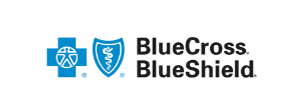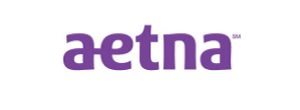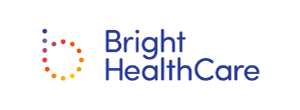BPD Treatment Center in Nashville, TN
Does living on the edge of emotions every day sound exhausting? Riding a rollercoaster of ups and downs is a reality for individuals with BPD. Borderline personality disorder (BPD) is a condition where people have trouble controlling their feelings. We know it’s more than just getting angry or acting impulsively. Our BPD treatment center in Nashville, Tennessee, will help you break free.
People with BPD might do impulsive things or think badly about themselves because they find it hard to control their emotions. When things get stressful, their emotions take control. Are you or a loved one among the 1.6% in the U.S. affected and needing mental health treatment?
Co-Occurring BPD and Substance Abuse in Nashville
Substance abuse and other mental health disorders occurring with BPD make symptoms more severe and unpredictable.
- Studies revealed a strong link between BPD and substance use disorders. Nearly 78.2% of individuals with BPD were diagnosed with a substance use disorder at some point in their lives.
- Approximately 13% of people with borderline personality disorder have a substance use disorder involving a drug other than alcohol.
- About 24% of people with BPD have an alcohol abuse disorder. Despite the rise in opioid addiction throughout Tennessee, alcohol is the most commonly abused substance among Tennessee adolescents and adults.
- About 400,000 Tennesseans have substance use disorder (SUD). Only 1 in 10 Tennesseans who need treatment for SUD obtain it and receive the care they need.
- BPD is one of the most commonly diagnosed personality disorders, accounting for about 10% of psychiatric outpatient cases and 20% of psychiatric inpatient cases. Over four million people have BPD in America alone. Nearly 75% of patients diagnosed with BPD are women.
- About 70% of people with BPD will make at least one suicide attempt in their lifetimes. Between 8 and 10% of people with BPD will complete suicide. This rate is more than 50 times the rate of suicide in the general population.
- As many as 20% of people with BPD also have bipolar disorder, making their diagnosis and treatment more complicated.
Our Borderline Personality Disorder Treatment Programs
We offer cutting-edge programs to help those suffering from BPD. Southeast Addiction Center in Nashville, Tennessee, can help you live a sober, substance-free life.
Our mental health clinicians treat all aspects of the disorder. This includes any substance use disorders that occur along with BPD. and other mental health conditions. This is called dual diagnosis or co-occurring disorders, one of our specialties.
Our inpatient and intensive outpatient programs are especially helpful in dual-diagnosis cases.
Inpatient Treatment or Residential Treatment
This immersive routine-focused program helps people with severe BPD symptoms who struggle to control their emotions and behaviors independently.
In these programs, you have a dedicated care team to give support and assistance. Specialized treatments such as DBT or CBT are utilized. Inpatient programs provide a highly safe and structured environment.
Partial Hospitalization Programs (PHPs)
Partial Hospitalization Programs are an effective treatment option for individuals who require more support than our traditional outpatient therapy programs but do not require 24/7 care.
Here are some of the advantages of PHPs:
- Structured environment: Helps to manage acting on impulse and regulating emotions.
- Intensive treatment: A level more intense than traditional outpatient therapy, with daily therapy sessions and support from a team of healthcare professionals.
- Flexibility: Ease into balancing a daily routine with guidance. Individuals return home at the end of the day and practice everyday routines.
- Cost-effective: A more accessible option that is generally less expensive than inpatient programs.
Outpatient Treatment Programs
Outpatient Treatment Programs provide more freedom and suit individuals with less severe symptoms or those who can maintain functionality. Our outpatient programs may include individual therapy, group therapy, skills training, and medication management.
Here are some of the advantages of outpatient services:
- Flexibility: Integrate back to real life with ease. Attend treatment while maintaining a daily routine.
- Affordability: A more cost-friendly and accessible program than inpatient programs. They may be covered by insurance or be less costly.
- Privacy: Outpatient programs allow individuals with BPD to receive treatment in a private setting.
- Community-based support: Gain fellowship and connect with others with shared experiences. Build a sense of belonging.
- Personalized treatment: Receive the same customized plan approach as an inpatient.
Sober Living
A transitional living home for mental disorders can offer you support and structure while still allowing you to be independent and practice new coping skills without having to go at it alone.
Some of the advantages of sober living include the following:
- A structured and supportive environment: Feel more stable and secure. They also offer a supportive community of peers who understand what it’s like to struggle with BPD and substance abuse.
- Co-occurring disorders: You benefit from our dual diagnosis program. This is important for individuals with BPD, who may be more likely to struggle with substance abuse than the general population.
- Relapse prevention: Relapse prevention programs can help individuals with BPD stay sober and manage their symptoms over the long term.
- Skill-building: Learn healthy habits and valuable skills. This might include dialectical behavior therapy (DBT), which can help individuals with BPD learn to manage their emotions and behaviors more effectively.
Individualized Approach
Borderline personality disorder (BPD) and substance abuse often must be treated simultaneously. Half of the people with borderline personality disorder have active substance use disorders. This increases the risk that they will engage in self-destructive behavior, harm themselves, or attempt suicide.
Fortunately, there are effective treatments available for both conditions. BPD is never a one-size-fits-all diagnosis, and neither is our treatment approach.
The most effective therapy for BPD is dialectical behavior therapy (DBT). DBT uses cognitive behavioral therapy (CBT) techniques and mindfulness training. This therapy helps people with BPD improve skills and capacities for distress tolerance, coping skills, impulse control, emotional regulation, and getting along with others.
DBT can easily be integrated with existing approaches to substance abuse treatment, like support groups and motivational interviewing (MI). MI is an evidence-based practice that improves staying in treatment and positive results.
Our dual diagnosis treatment programs for borderline personality and co-occurring substance use disorders often incorporate DBT and substance use recovery groups.
A specific version of DBT has been made to treat co-occurring BPD and substance use disorders. It uses a group format to help people learn traditional DBT and additional mindfulness skills targeted at BPD and preventing substance use.
At Southeast Addiction Center, we tailor our treatment plans to each client. We work with you to determine your treatment map. Southeast Addiction Center in Nashville is independently owned and operated. This means you’re never just a name or number to our team.
What are the Four Types of BPD?
BPD affects millions of people, but did you know there are four different subtypes of BPD? From the impulsive to the petulant, each type has its own unique set of traits and challenges.
These four types of BPD are characterized by the following:
- Discouraged: Feelings of sadness, emptiness, and worthlessness, as well as a tendency to self-criticize and feel hopeless.
- Impulsive: Risk-taking behaviors, difficulty with self-control, and a tendency to act on impulse rather than thinking things through.
- Petulant: Feelings of anger, irritability, and impatience, as well as a tendency to be argumentative and easily frustrated.
- Self-destructive: Self-harming behaviors, suicidal ideation, and feelings of hopelessness, as well as a tendency to engage in high-risk behaviors and neglect self-care.
Not everyone with BPD will fit neatly into one of these types, and individuals with BPD can exhibit traits of multiple subtypes or exhibit different subtypes at different times.
What are the Symptoms of BPD?
People with borderline personality disorder have strong emotions and can have trouble controlling them. They may quickly change how they feel about others. They also tend to think in extremes, “black and white thinking,” have varying interests and values, and may act impulsively.
Other symptoms of BPD may include:
- Efforts to avoid real or perceived abandonment include plunging headfirst into relationships or ending them just as quickly.
- A pattern of intense and unstable relationships with family, friends, and loved ones.
- A distorted and unstable self-image or sense of self.
- Impulsive and often dangerous behaviors include spending sprees, unsafe sex, substance abuse, reckless driving, and binge eating.
- Self-harming behavior, such as cutting.
- Recurring thoughts of suicidal behaviors or threats.
- Intense and highly variable moods, with episodes lasting from a few hours to a few days.
- Chronic feelings of emptiness.
- Inappropriate, intense anger or problems controlling anger.
- Feelings of dissociation, such as feeling cut off from oneself, observing oneself from outside one’s body, or feelings of unreality.
You don’t have to struggle through anguish before getting the proper treatment. While BPD is a serious mental illness, it is not a life sentence.
Southeast Addiction Center’s Nashville Team
Our team consists of mental health and addiction experts. We’re equipped to take the time to assess and treat you uniquely.
Southeast Addiction Center has the expertise to help those battling with borderline. We use evidence-based treatments to diagnose and treat BPD (and other occurring issues). Our program and people make us unique.
We focus on whether you or a loved one comes to us for help. Southeast Addiction Center treats you with respect and empathy. Our track record of success and top-reviewed network of centers are here to help.
Insurance and Payment Options
Our team will help you understand how your insurance covers BPD treatment programs. If you don’t have healthcare insurance, we have payment options.
We aim to make BPD treatment affordable and accessible for everyone who needs it. We want to provide the highest quality and cost-effective care when you need it most.
Our knowledgeable team is available to answer questions about the program. Our consultation is free, and we can recommend intervention services if needed.
Contact Southeast Addiction Center for BPD Treatment Today
If you’re stuck and struggling on the BPD rollercoaster, we can help. Come to Southeast Addiction Center in Nashville to get the support you need. Your BPD is not like anyone else’s. Our mental health pros understand. Take the first step toward regaining control of emotions, relationships, and your life.
If you’re surprised we can help, we can’t wait to show you how. Our compassionate and evidence-based care goes the distance in treatment. Reach out 24/7 to learn more.
Call us at (615) 326-6449 or email us at [email protected] to take the first step toward regaining control of emotions, relationships, and your life.
Our Programs

About Us













